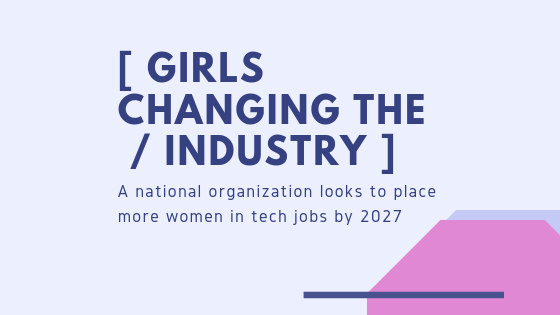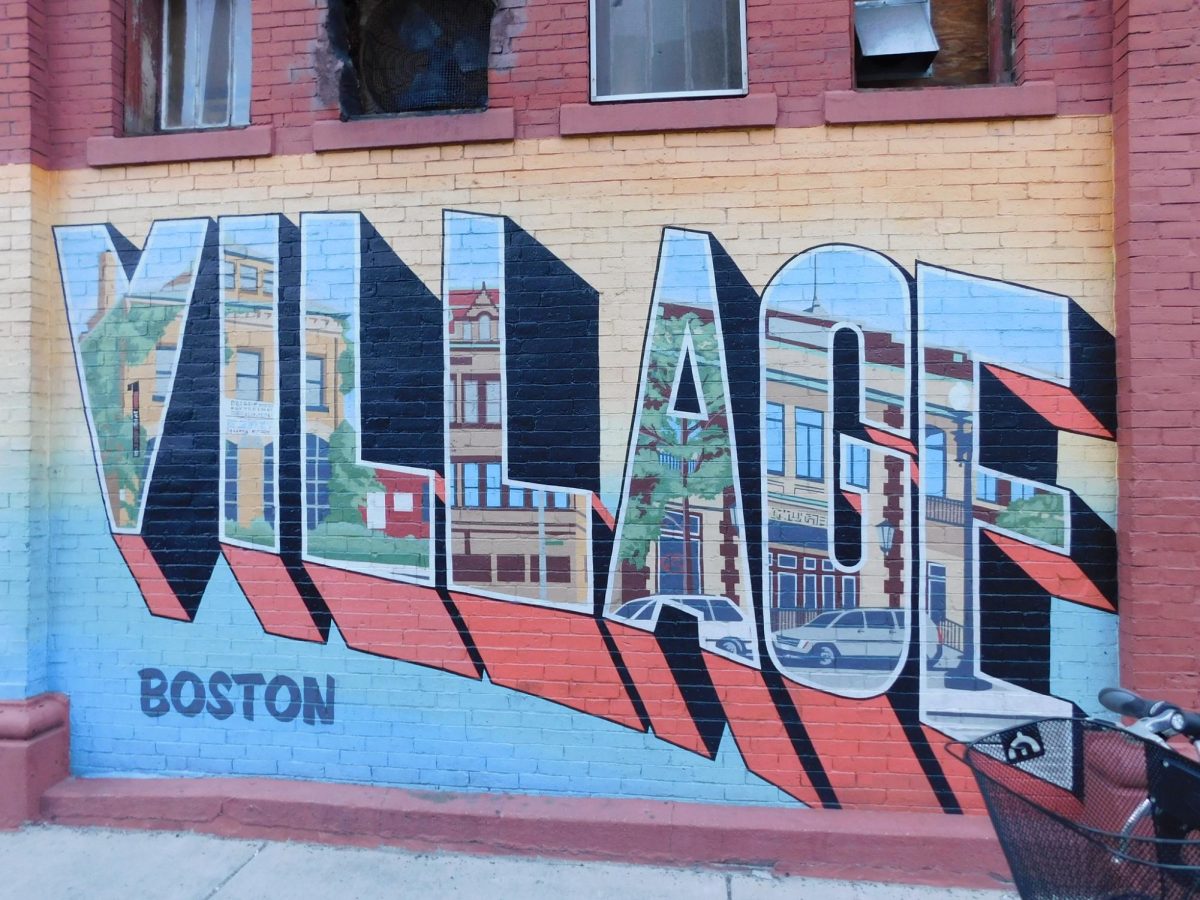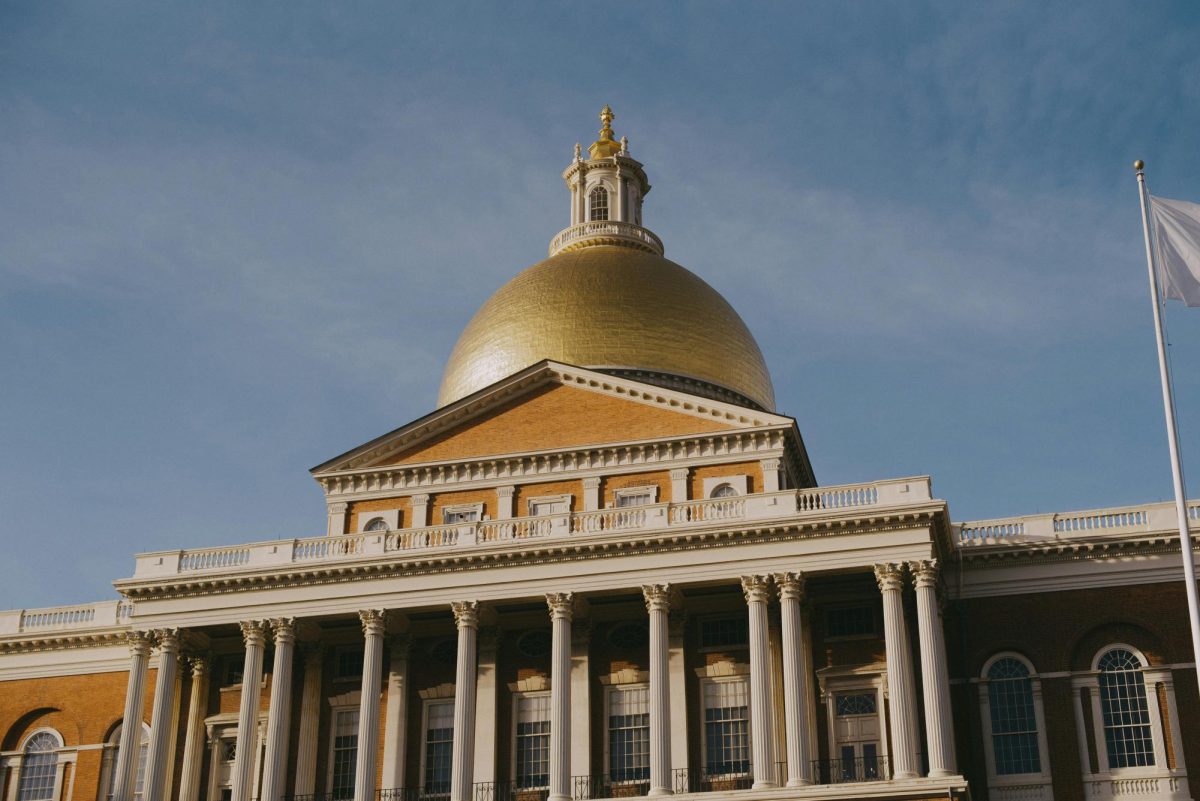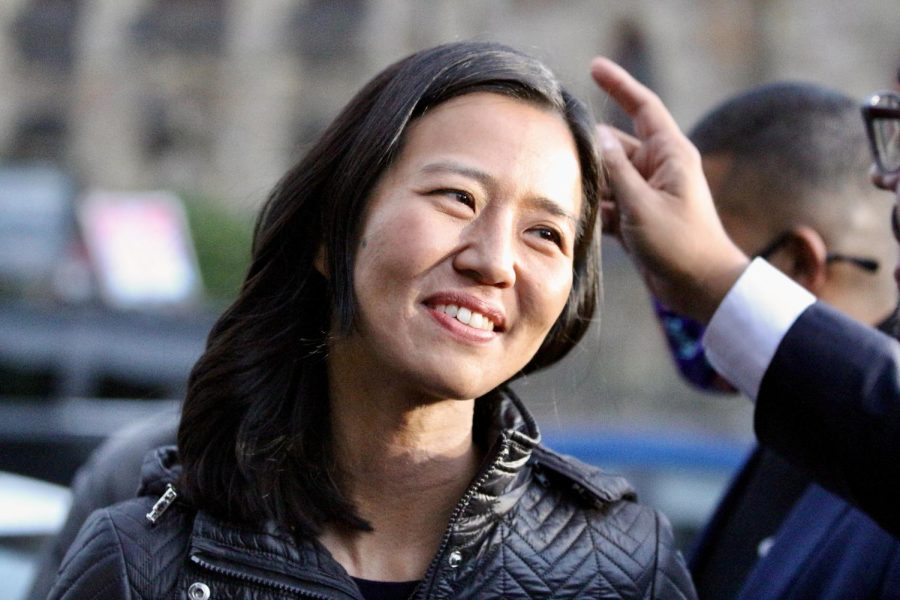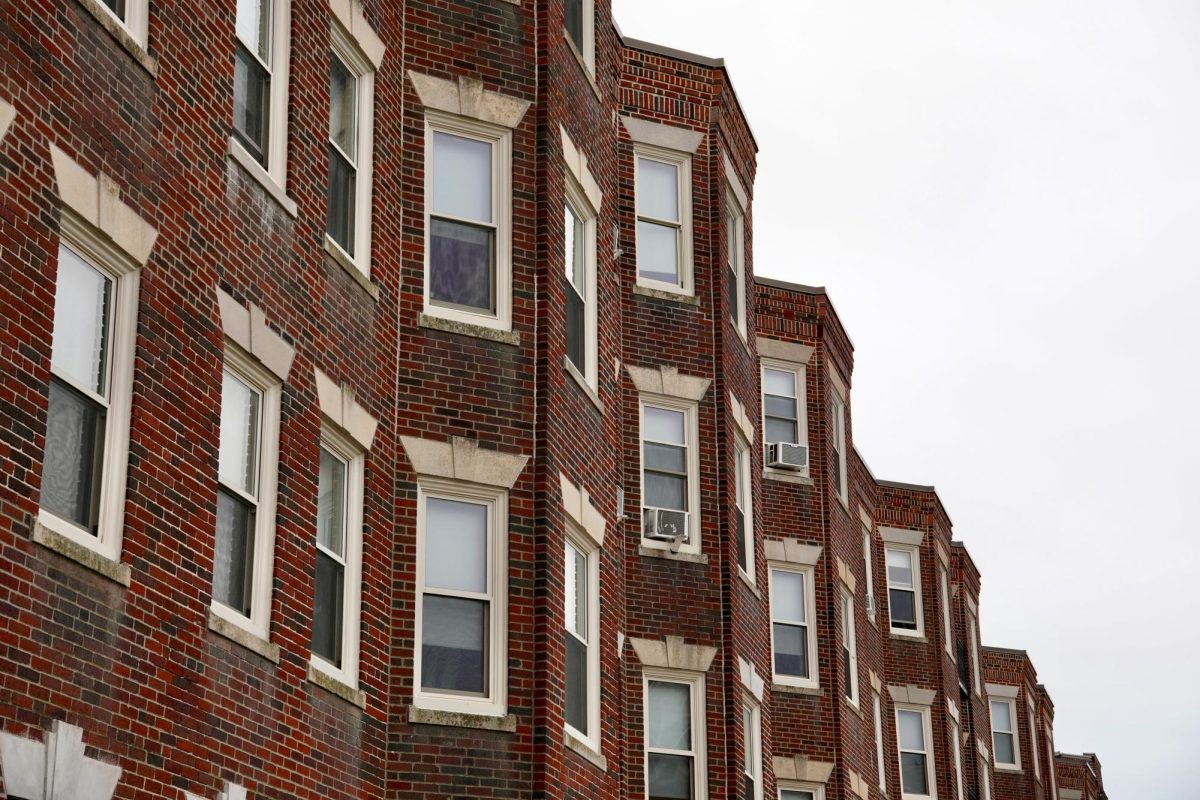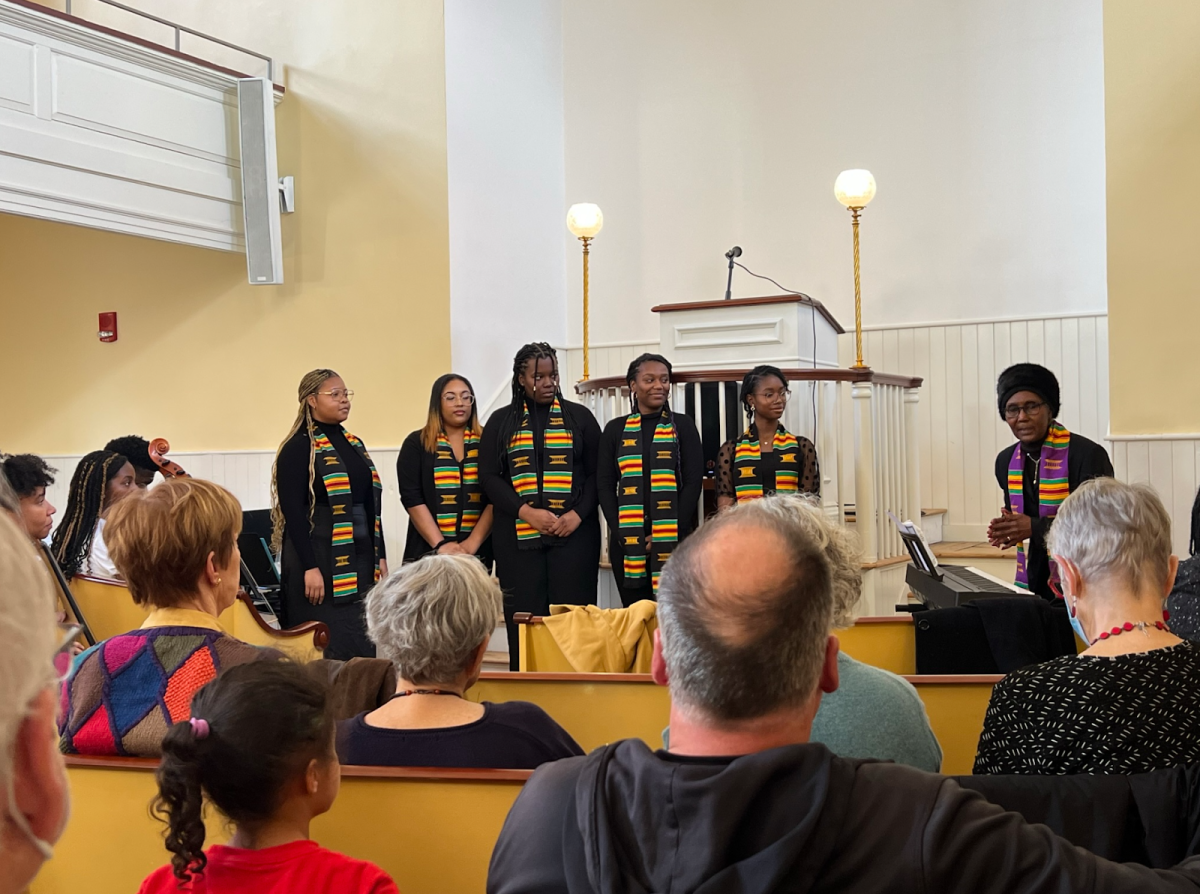By Alyssa Lukpat, Ava Sasani and Joshua Stair
On a recent Saturday, 12-year old Lily Castello ran up the stairs to the computer lab in Northeastern University’s computer science building. Castello, a middle-school student from Roslindale, was ready and eager to participate in Northeastern’s Girls Who Code club, a group that teaches 17 Boston-area girls computer science every Saturday afternoon.
“I really love code and I wanted to find out more about it with others girls my age,” Castello said. “I like that you can do what you’re interested in. Even if you’re more interested in animals, you can still use code to make really cool things about them.”
Castello’s teacher is Jessica Merritt, a third-year computer science student at Northeastern University. Merritt has been running Northeastern’s Girls Who Code chapter for the past two years. While many of her pupils are younger, two are on track to study computer science in college next year.
Merritt says that the club, which she leads with five fellow computer science majors, endows girls with the confidence necessary to study coding.
“I’m seeing girls not confident in their first year grow more confident their second year by raising their hand and talking more about how they’re proud of the projects they made,” Merritt said. “I’ve seen girls grow in the program and that’s definitely the proudest moment for me.”
Of the almost 4.2 million computer workers nationwide, only 25 percent are women, according to 2016 data from the Economic Policy Institute. Girls Who Code, a national organization, has a goal of changing that, and achieving gender parity in entry-level technology jobs by 2027. Through GWC’s summer camps and weekly community meetups, the organization introduces girls to coding and encourages them to pursue computer science in college.
Of the 90,000 Girls Who Code alumni nationwide, roughly 13,000 are college-aged and many study in the Boston area.
Kelly Luis is the leader and co-founder of the Dorchester chapter, based out of the Grove Hall Library. Luis discovered her passion for coding later in her career. But she said that if she had known about Girls Who Code before college, she may have studied computer science much sooner.
“In college, I kind of learned that technology and computer science are incredibly stigmatized… and I never expected to go into tech,” Luis said. “In my first year of grad school, I thought, ‘If I had that opportunity to do [Girls Who Code], maybe I would have been more brave to do computer science in college.’”
Luis is constantly aware of the fact that she is teaching coding in one of Boston’s last predominantly black neighborhoods. When Luis following Girls Who Code’s required lesson plans about famous women in technology, she tries to include women of various ethnicities and races.
“I do my best to find women from diverse backgrounds, and that’s actually really hard,” said Luis, who is now a doctoral candidate in marine sciences and technologies. “Just the simple motto of someone who looks like you and someone that’s different is really inspiring.”
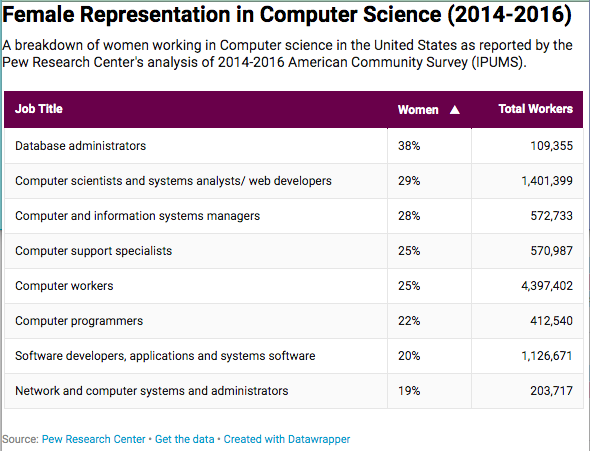
Girls who have prior experience studying computer science in high school are 10 times more likely to major in the subject than women with no prior experience, according to the Computer Science Teachers Association. But in Massachusetts, less than a quarter of the Advanced Placement computer science exams were taken by girls in 2017.
Massachusetts is one of 44 states without a state plan for teaching computer science to students, according to Code.org, and did not graduate any teachers in 2016 who were qualified to teach the subject.
Sadaf Khansalar, a third-year computer science student at Northeastern University, is Luis’ co-facilitator at the Grove Hall branch of GWC. Khansalar decided to teach at GWC after seeing how disadvantaged novice coders are in introductory computer science, or CS, classes.
“There are some boys who come to college with a lot of CS background, and that’s cool and great. But that is not really fair to people who did not have any CS background. It’s important to have more [resources] for those who don’t [have a CS background].” Khansalar said. “You rarely see girls who [went] to CS schools in high school, or took CS classes before.”
Prisca Joseph, a third-year student at Northeastern University, said that if she hadn’t participated in a Girls Who Code program in Cambridge, Massachusetts in high school, she wouldn’t be studying computer science now.
“I never even considered [computer science] before, but I think [Girls Who Code] really helped me find new skills and new interest in my major,” Joseph said. “They did a good job of not only doing it by showing skills you need in CS, but also encouraging you with mentors and the support system they give you as well.”
Joseph, who is African American, is part of the 50 percent of Girls Who Code alumni who are from groups historically underrepresented in technology, including girls from black, Hispanic and low-income households. In the overall tech workforce in the United States, only seven percent are black and Latino, according to a 2016 Pew Research Center study.
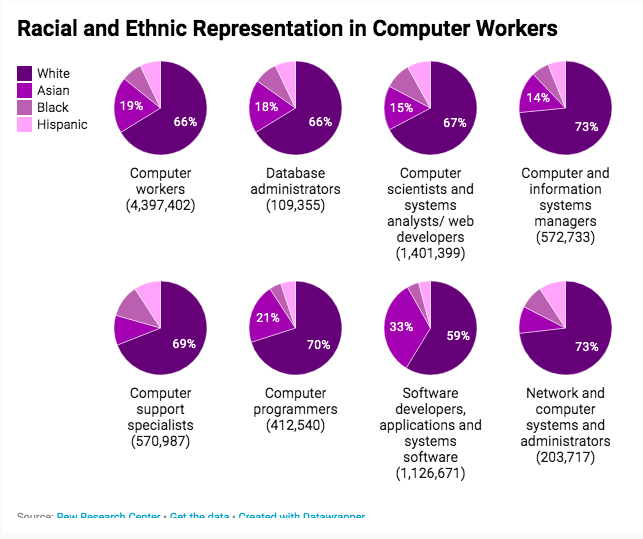
Despite the diversity numbers, Girls Who Code came under fire in August 2017 by groups like Black Girls Code and the Anita Borg Institute for accepting a $1.2 million donation from Uber. The ridesharing service was facing controversy at the time about its workplace environment after Susan Fowler, a former Uber engineer, wrote a blog post detailing the company’s sexist culture.
Girls Who Code has also faced backlash from various technology affinity groups for appointing Uber chief brand officer Bozoma Saint John to its board of directors.
But Laney Strange, computer science professor at Northeastern, said the grassroots benefits of local Girls Who Code programs outweigh the importance of the organization’s national controversy.
“These groups are absolutely still relevant,” Strange said. “The way that I see it is that we need to approach this diversity problem from a lot of different angles. Girls Who Code has weekly clubs here, so that is a regular exposure, learning something over time.”
Strange said Girls Who Code chapters help deconstruct the idea that the tech job market is an even playing field.
“We have this idea that [computer science] is a meritocracy” Strange said. “But of course there’s bias, of course the people making the decisions are more likely to hire people that look like them. It’s a fallacy that you answer the question or you don’t, that’s why we as an industry become a little bit arrogant.”
Luis says she is proud to work for Girls Who Code, and wants to inspire her students to pursue computer science while they’re young. She says she strives to be someone her students can look up to.
“I have to tell myself, ‘You’re a strong, beautiful coder,’ because it would be dishonest to them if I didn’t believe it myself,” she said.

